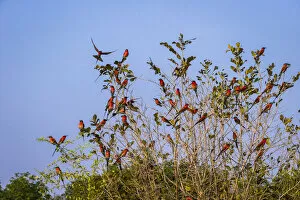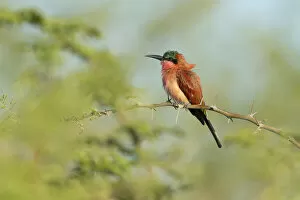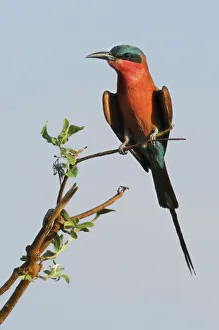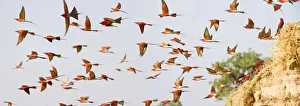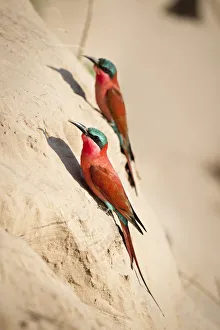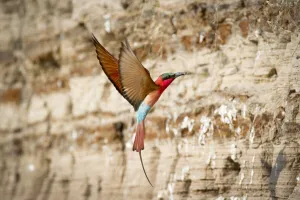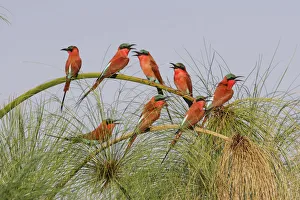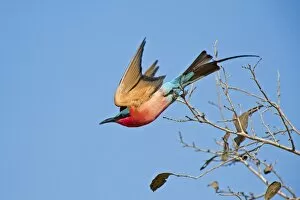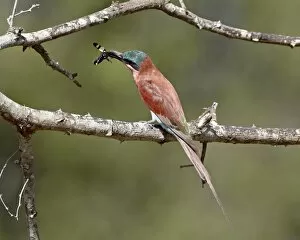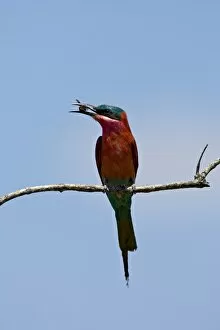Merops Nubicoides Collection
"Captivating Beauty of the Carmine Bee Eater: Merops nubicoides" Discover the vibrant world of the Carmine Bee Eater, also known as Merops nubicoides
All Professionally Made to Order for Quick Shipping
"Captivating Beauty of the Carmine Bee Eater: Merops nubicoides" Discover the vibrant world of the Carmine Bee Eater, also known as Merops nubicoides. Found in various stunning locations such as Mana Pools National Park in Zimbabwe, South Luangwa National Park in Zambia, and Chobe National Park in Botswana, these magnificent birds are a sight to behold. With their striking carmine plumage and long tail feathers, Southern Carmine Bee-eaters grace the skies with their elegant flight. Perched on branches or hovering above nesting colonies along river banks, they create a mesmerizing spectacle for nature enthusiasts. In pairs or flocks, these bee-eaters exhibit remarkable social behavior. Witness them near nest holes on river banks or returning to their cozy abodes nestled amidst lush vegetation. Their presence adds color and life to the serene landscapes they call home. From afar, you can spot Southern Carmine Bee-eaters perched on trees overlooking rivers like Cubango River. Their vivid hues contrast beautifully against the backdrop of blue waters and green foliage. Mana Pools National Park in Zimbabwe and South Luangwa National Park in Zambia offer privileged glimpses into the lives of these fascinating creatures. As they fly over nesting colonies or rest atop tree branches, photographers capture breathtaking images that showcase their natural elegance. The Carmine Bee Eater's habitat is not only visually captivating but also ecologically important. These birds play a vital role by preying upon bees and other insects which helps maintain balance within local ecosystems. So next time you find yourself exploring Mana Pools National Park or South Luangwa National Park or any other location where Merops nubicoides resides, keep an eye out for these enchanting Southern Carmine Bee-eaters – nature's own masterpiece.


